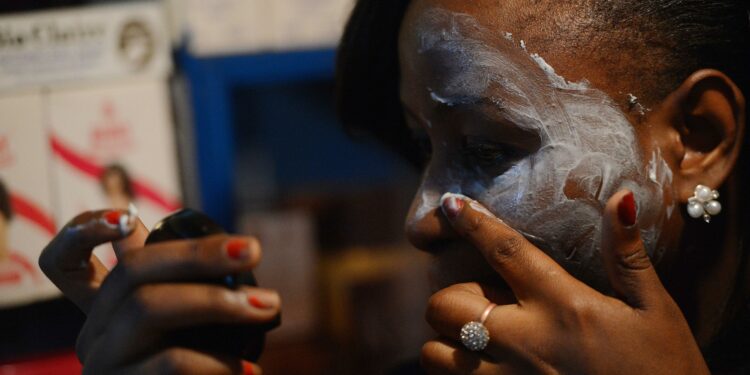West Africa becomes haven for $10bn market fake bleaching creams and injections
A lab analysis of one of the many products sold in Ivory Coast showed it contained no whitening agents. Many of the products are unregulated and contain dangerous chemicals like alpha hydroxyl acids (AHAs), a type of corrosive compound used in chemical peels.

The use of skin-whitening creams and injections has become increasingly popular among West African women, who aspire to lighten their skin tone to appear as white as Europeans. In many parts of West Africa, having a lighter skin tone is associated with higher status, privilege, and beauty.
According to a recent report, the global market value for bleaching treatments is projected to jump from an estimated $10 billion in 2021 to $16 billion in 2030. Some estimates have put the number of women using lightening cream at 70 percent in some West African areas. However, officials are worried about a sharp uptick in skin cancer because these products attack the skin’s natural protective melanin.
In a report by AFP, dozens of social media pages in Cameroon, Ivory Coast, Niger, and Senegal advertise “uniform whitening” thanks to various creams or injections. An Ivorian YouTube influencer who fell victim to the shady promise of skin-bleaching injections narrated her experience saying she waited 10 days in vain to see any results. “Clearly, I’ve been ripped off,” she told AFP.
A lab analysis of one of the many products sold in Ivory Coast showed it contained no whitening agents. Many of the products are unregulated and contain dangerous chemicals like alpha hydroxyl acids (AHAs), a type of corrosive compound used in chemical peels.
Dr. Sarah Kourouma, a dermatologist of the Treichville University Hospital in Ivory Coast, revealed that some of these jabs contain strong anti-inflammatories. “Given their side effects, we assume that they are steroids,” she told AFP, adding that prolonged use in high doses can cause depigmentation, diabetes, and hypertension.
Dr. Grace Nkoro, a dermatologist at the Gynaeco-Obstetric Hospital in Cameroon agrees that the increasing popularity of the injections is a worrying trend, saying she had seen several patients develop skin problems and even kidney failure after “buying these injections on the internet.
- Advertisement -
- Advertisement -
- Advertisement -
- Advertisement -



